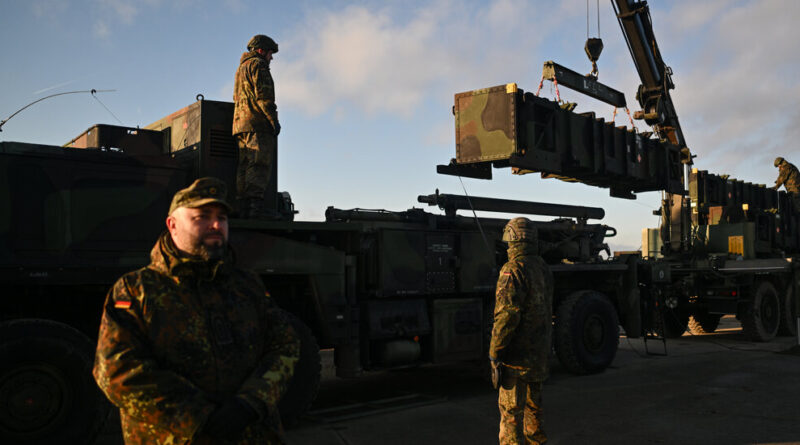With Trump’s Backing Uncertain, Europe Scrambles to Shore Up Its Own Defenses

Russia’s full-scale invasion of Ukraine three years ago convinced Europe’s leaders that they needed to spend more money on defense. On Monday, leaders from across the European Union and Britain met in Brussels to debate a vexing question: how to pay for it.
It was a concern made more acute by President Trump’s return to the White House.
The United States is the largest military funder of Ukraine’s war effort, but Mr. Trump has suggested he will rapidly withdraw U.S. financial and military support and leave it to the Europeans. He has also insisted that NATO nations ramp up defense outlays to 5 percent of their annual economic output, a drastic increase from the 3 percent or 3.5 percent NATO plans to make its goal at its next summit meeting this summer. The United States itself spends only about 3.4 percent of gross domestic product on defense.
And security is only one of the arenas in which the Trump administration is striking a more confrontational stance. Mr. Trump pledged on Sunday night to slap new tariffs on European trading partners “pretty soon.” That is intensifying a sense in Europe that it needs to be able to fend more for itself in a world where the United States is a less reliable partner.
With the war in Ukraine, the European Union, which was founded on free trade and termed itself a “peace project,” has become more committed to deterrence and defense. It is now scrambling to expand its defense industries and make spending more efficient and collaborative. Prime Minister Keir Starmer of Britain attended Monday’s gathering, the first time since Britain left the European Union that a British leader has met with the 27 leaders of the bloc in Brussels.
“Across Europe, we must shoulder more of the burden now — because it is our burden to carry,” Mr. Starmer said during a news conference on Monday.
Within the European Union, part of the ongoing debate centers on whether the bloc will be able to raise more money to pay for defense through common debt, as it did to fight Covid. But the issue is thorny: Such joint fund-raising might impede the efforts of member countries to meet the individual demands that the NATO alliance is already making of them in terms of raising military budgets. Of the 27 E.U. countries that will meet in the closed-door session on Monday, 23 are members of NATO.
Source – NY Times




